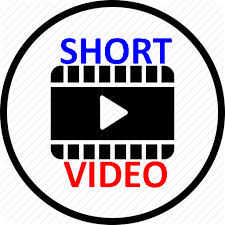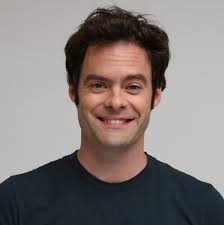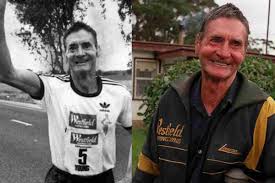
What I’ve done with the videos that I’m recommending this time is a bit of what I think is an improvement. Instead of covering 25 to 30 different subjects, I’m covering just 10. But I’m providing two or three links for each of them, with the expectation that you will find some of them worth more than just a minute or two of your time.
1. Super Cute and Immensely Skilled

2 videos
Total Watch Time: 9 min.
Her name is Yoeun Seoul. She was born in South Korea in 2012. She began training in classical violin when she was just shy of three years old. According to her parents, she “loves reading and enjoys figure skating and is attending Cheon Cheon Elementary School.” Recently, she started a YouTube channel to record some of her practices and performances. (She has 800,000 subscribers.)
Here she is at eight years old doing some impressive work. Watch Time: 4 min.
And here she is a year or two older showing immensely improved skills – virtuosity, IMHO. Watch Time: 5 min.
2. Bill Hader Off the Cuff

2 videos
Total Watch Time: 8.5 min.
Bill Hader in a brilliant comedian, a successful producer, and a likeable actor. Here he tells Conan O’Brien a little story about his daughter that turns into a laugh fest. Watch Time: 3 min.
And here he is being interviewed by “Jiminy Glick.” Note how Bill handles it. Like a pro. Watch Time: 5.5 min.
3. From Sheep and Potato Farmer to National Hero

3 videos
Total Watch Time: 8.5 min.
You gotta love this story. Cliff Young was a 61-year-old Australian farmer who figured he was good enough to compete against the best long-distance runners in the world because he had spent a good part of his adult life chasing sheep and cattle around his potato farm. He somehow managed to get registered in what was considered the most challenging ultra-marathon – a brutal 541-mile race from Sidney to Melbourne – even though he had never run in a race in his life. His performance shocked the racing world and stole the hearts of his fellow Australians. Watch Time: 1.25 min.
Here’s a slightly longer take on it that will give you an idea of the competition he faced. Watch Time: 3 min.
And if you’d like to know more about Cliff Young, watch this. Watch Time: 4.25 min.
4. The Biggest Lies from the Big Food Cartel

2 videos
Total Watch Time: 4.25 min.
As a publisher of health and fitness information for more than 30 years, I’ve worked with dozens of very credible doctors, nutritionists, and health scientists. Dr. Al Sears, one of the first of those experts I had the pleasure of working with, is one of the best. Here he debunks a very common myth about nutrition: that chicken is better than red meat. Watch Time: 2.25 min.
And here he talks about the four biggest vegetarian lies. Watch Time: 2 min.
5. Daddy Yankee’s Gasolina Resurfaces in Africa

3 videos
Total Watch Time: 6.5 min.
Ramón Luis Ayala Rodríguez, known professionally as Daddy Yankee, is a Puerto Rican rapper, singer, songwriter, and actor. Dubbed the “King of Reggaeton,” he is often cited as an influence by other Hispanic performers. Twenty years ago, Daddy Yankee produced a record called Gasolina. It became an international hit, although I never heard of it. And neither did you. Admit it. In recent years, it’s become a favorite among African amateur video makers.
Here’s a group of “ghetto kids” from Namibia doing it. Watch Time: 1 min.
Here it is with my favorite African group. Watch Time: 2.5 min.
And here it goes slightly bad with a Zumba group. Watch Time: 3 min.
6. Kiwi Humor at Its Most Authentic

2 videos
Total Watch Time: 4 min.
Nick Caper is a New Zealand comedian best known for his role in Bruce, a black comedy series. Here he talks about how he wins fights by using his brains. Watch Time: 2 min.
And here he is talking about horror movies. Watch Time: 2 min.
7. Loren DiGiorgi: Nerdy Look, Great Piano Teacher

2 videos
Total Watch Time: 5 min.
He’s obviously a good piano player and a master of musicology. I’d have liked to have him as my high school music teacher. Here he gives us a piano lesson. Watch Time: 3 min.
And here he shows us how Mozart’s Turkish Rondo would sound as ragtime, jazz, and blues. Watch Time: 2 min.
8. Never Seen This Before: Serenading Animals

3 videos
Total Watch Time: 9 min.
I like this guy’s shtick. He seems to be French, but you wouldn’t know it when he sings in French. Somehow, he got the idea of getting famous on social media by playing his guitar and singing to animals – all sorts of animals – to see how they would react. As it happened, they responded very positively. It does make one wonder what we’ve failed to figure out in terms of our commonality with animals.
Here he is performing a song in French that demonstrates the quality of his voice. Watch Time: 4.5 min.
But that’s not why I like him. I like him because of the bits he does with the animals. Like this one. Watch Time: 1.5 min.
And this one. Watch Time: 3 min.
9. Matt Rife’s Impromptu Comedy

3 videos
Total Watch Time: 4.75 min.
I feel like I discovered Matt Rife because I came across him by chance when I was doing my YouTube addiction scan. But I didn’t. According to Wikipedia, he’s an American comedian and actor. He is best known for his self-produced comedy specials, as well as his recurring role on the sketch improv comedy and rap show Wild ‘n Out. He’s one of those great white comedians who does well with “sensitive” issues.
Here’s a taste. Watch Time: 1.25 min.
Here he deals with autistic children. Watch Time: 2 min.
Here’s another good one. Watch Time: 1.5 min.
10. Intriguing: The Mystery of “The Hat Man”

2 videos
Total Watch Time: 10 min.
Countless people claim to have seen The Hat Man – a shadowy figure in a wide-brimmed hat – while experiencing sleep paralysis, bringing on an overwhelming sense of dread. Why have so many people, throughout time and across different cultures, reported the same eerie encounter? Is it a neurological glitch or something more?
Here’s one explanation. Watch Time: 2 min.
Here’s another one. Watch Time: 8 min.













